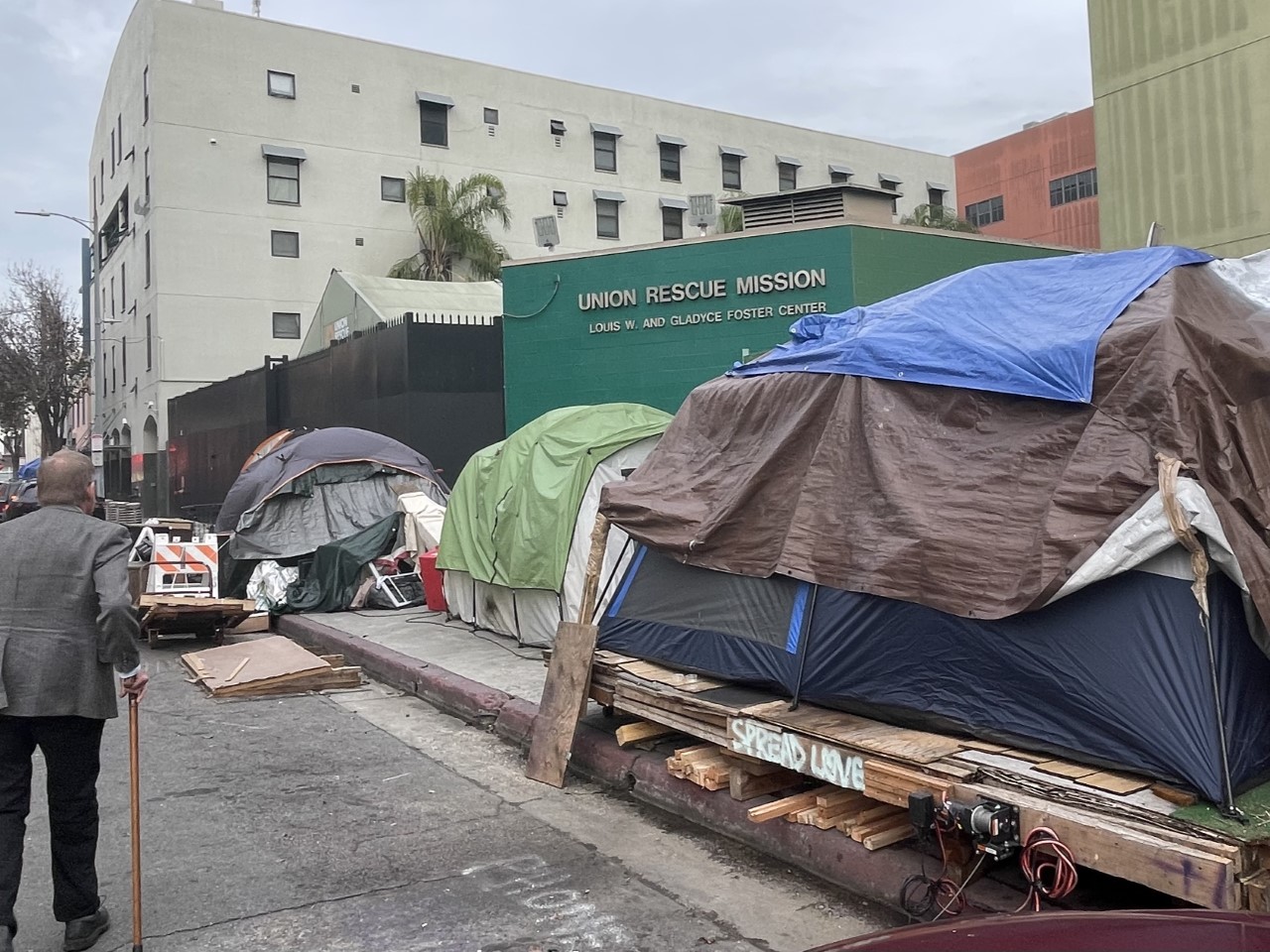It’s a question of compassion. The official approach to homelessness in California (plagiarized from the federal government), called “Housing First,” is billed as a compassionate, effective measure designed to keep the most vulnerable from suffering or dying on our streets.
But Californians know better. The homeless are dying in greater numbers than ever before — and lives are being destroyed by an approach that enables self-destructive behavior rather than encourages people to participate in improving their well-being.
“People look at homelessness as the issue,” says recently sworn-in Sacramento County Supervisor Pat Hume. “It’s not; it’s people. Homelessness is by and large the result of drug addiction and mental health.” If you put someone who is struggling out of public eye, in housing by themselves, they’ll spiral even further and faster. They’ll probably end up back on the street. It’s a failed model on every level. We’re addressing a housing situation, not the real issues.” (RELATED: PETER ROFF: Is Gavin Newsom The Solution To Dems’ Joe Biden Problem?)
Indeed, since its debut in California, the homelessness population has mushroomed. Despite a 33% increase in the number of permanent housing units dedicated to the homeless since the 2016 adoption of the Housing First approach, California’s unsheltered homeless population rose by 47.1%, according to 2020, pre-pandemic data from the Department of Housing and Urban Development (HUD). Post-pandemic data reveals that California—with 12% of nation’s population—is now home to 30% of its homeless population and 50% of its unsheltered population.
Unsurprisingly, the death rate of those experiencing homelessness has also ballooned. A pre-pandemic data analysis from the nation’s 20 largest cities reveals a 77% increase in homeless deaths over the 2015-2020 period. These majority of these deaths — drug overdoses, violence, traffic deaths and premature lethality of treatable conditions like heart disease — were preventable or treatable.
But Housing First isn’t concerned about treatment — or even effectiveness. In 2013, HUD wholly defunded treatment services to fund additional permanent housing vouchers.

Michele Steeb
California state Sen. Angelique Ashby represents a district that stretches from Sacramento to Death Valley. She wants to be a champion for homeless women and children, but Housing First makes that all but impossible — there’s no safe space for women or children under the Housing First approach. Why? Because Housing First does not permit screening, nor does it permit conditions such as sobriety in the housing, thus active drug use, people with criminal histories and even registered sex offenders are often present.
“Housing First basically excludes mothers and their children because you simply can’t have children in housing with drug addicts and criminal behaviors,” Sen. Ashby notes.
Where are the homeless women and children? They’re out of sight — and policy-wise, out of mind.
“They’re hiding,” she said. “They’re really good at hiding. But they’re there, and they’re the population with the best chance of succeeding. These women with kids have a reason to not give up. If you have to separate a mom from her child, you create a scar that will not mend. Our CPS system is full of those families.”
Alexandria Houck knows this first-hand. She was homeless for years.
“I moved out at 14 because I was fighting with my mom,” Alexandria explains. “My mom was struggling with her own addiction — and still is.”
But getting away from her mother didn’t change Alexandria’s trajectory. “I did oxy on the way to my graduation,” she says. “I’ve been addicted to heroin and meth. I’ve been to jail lots of times, to programs lots of times, staying here, sleeping there, in my car — just shenanigans.”
That began to change when she became a mother herself.
“I was in jail when I found out I was pregnant,” she explains. “Right after he was born, I was back to doing the same thing. The court removed him from my custody.”
In jail again, she learned about a program, Saint John’s, which used a different approach — let’s call it “Human First.” Saint John’s offered Alexandria the sobriety and accountability she knew she needed.
“Saint John’s provided the foundation for my life today,” she says. And that started with “structure and community I didn’t realize I was lacking,” she adds.
“Without those, I would have gone nowhere,” she says. “I’d still be in my addiction. I wouldn’t have regained custody of my son.”
It is a question of compassion. Californians see it much more clearly than do her policymakers whose offices are within plain sight of the human devastation their one-size-fits-all policy is causing, refusing still to acknowledge the failure of the 2013 promise that Housing First would end homelessness in 10 years.
Michele Steeb is a senior fellow with the Texas Public Policy Foundation and oversees the Foundation’s initiative to transform United States’ and Texas’ homelessness policy. Roy Maynard is senior writer for the Texas Public Policy Foundation. Prior to TPPF, Roy spent 30 years in the news industry.
The views and opinions expressed in this commentary are those of the author and do not reflect the official position of the Daily Caller News Foundation.
All content created by the Daily Caller News Foundation, an independent and nonpartisan newswire service, is available without charge to any legitimate news publisher that can provide a large audience. All republished articles must include our logo, our reporter’s byline and their DCNF affiliation. For any questions about our guidelines or partnering with us, please contact licensing@dailycallernewsfoundation.org.


